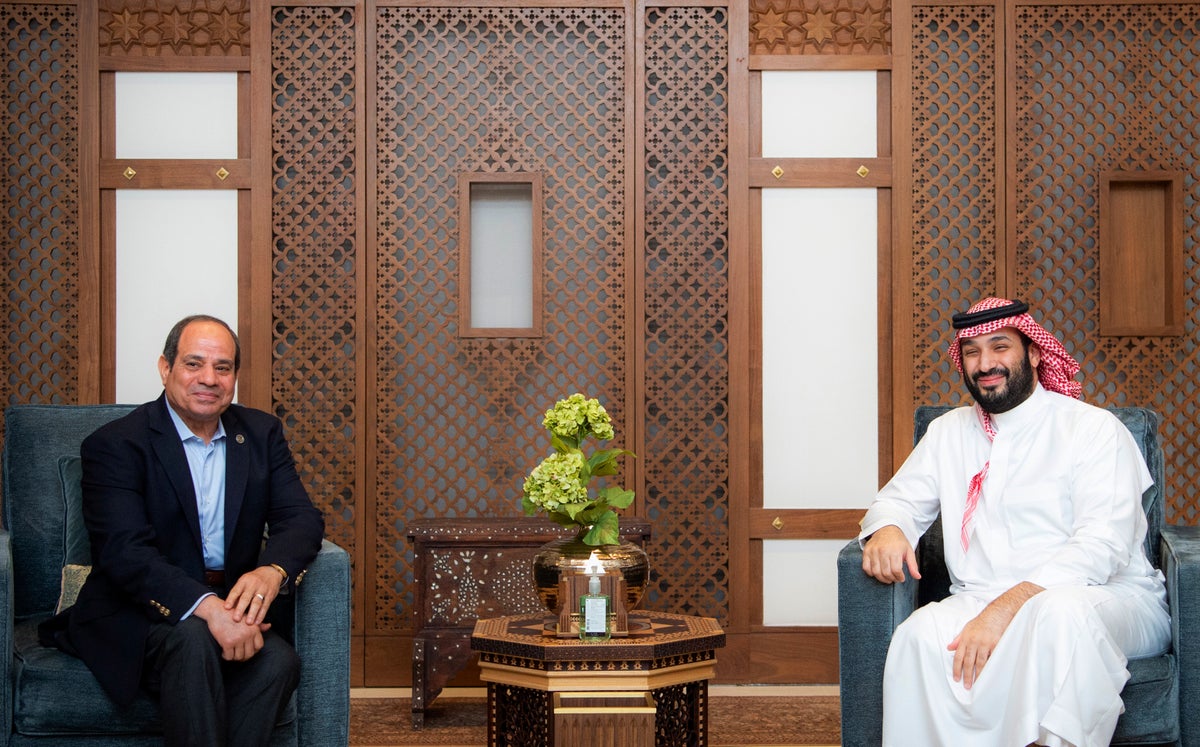
The leaders of Egypt and Saudi Arabia have met in the kingdom amid months of tension between the two regional powers, officials said Monday.
President Abdel Fattah el-Sissi and Crown Prince Mohammed bin Salman, the de facto leader of Saudi Arabia, held talks late Sunday that focused on ties between the two heavyweights, according to Egyptian presidential spokesman Ahmed Fahmy.
Fahmy said in a statement that the two leaders “affirmed mutual concern for promoting common cooperation in all fields.” They also agreed to continue “coordination and consultation” on regional and international topics, he added.
The statement did not give further details. The meeting came as el-Sissi's government is struggling to overcome an economic crises blamed on the war in Europe, but also under what critics say is mismanagement of the economy. It also came as two heavy powers have sought to mend their frayed ties with other regional powers, including Iran and Turkey.
Bin Salman, widely known in the west by the acronym MBS, received el-Sissi in the Saudi coastal city of Jeddah on the Red Sea. Images aired by state-run media in the two countries showed the crown prince waiting for the Egyptian president on the tarmac.
The surprise trip was the first announced encounter between the two leaders since they met in Qatar during the opening of the World Cup. El-Sissi also received bin Salman in Cairo in June 2022 ahead of President Joe Biden's Mideast trip.
Saudi Arabia and other Arab Gulf states have been the main suppliers of aid to the Egyptian government, which has been struggling to overcome a staggering economic crisis. In 2022, Saudi Arabia, Qatar and the United Arab Emirates pledged a total of $22 billion in deposits and direct investments in Egypt, in a bid to stabilize its battered economy after Russia’s invasion of Ukraine.
However, in recent months, Saudi Arabia and other Gulf states seemed increasingly reluctant to help cash-strapped Egypt. They urged el-Sissi’s government to make economic reforms to receive aid. Egypt has already begun to make changes as part of a $4 billion deal with the International Monetary Fund.
“We need to see reforms. We are taxing our people. We are expecting also others to do the same, to do their efforts. We want to help, but we want you also to do your part,” Saudi Finance Minister Mohammed al-Jadaan said at the World Economic Forum’s annual gathering in Davos, Switzerland, in January.
The veiled criticism to the Egyptian government's handling of the economy has strained ties between Cairo and Riyadh. And an online spat between public figures in the two countries erupted with an opinion piece in an Egyptian state-owned newspaper in February, which argued that Saudi Arabia and other Gulf states had no right to criticize the Egyptian government’s handling of its economy.
Speaking at the World Government Summit in Dubai in February, el-Sissi watered down the spat and praised Gulf monarchies for their financial support over the past years.
“Reality may be different from what we see in the media or what we hear from politicians … even when it’s politicians who think they are in control,” he said.







